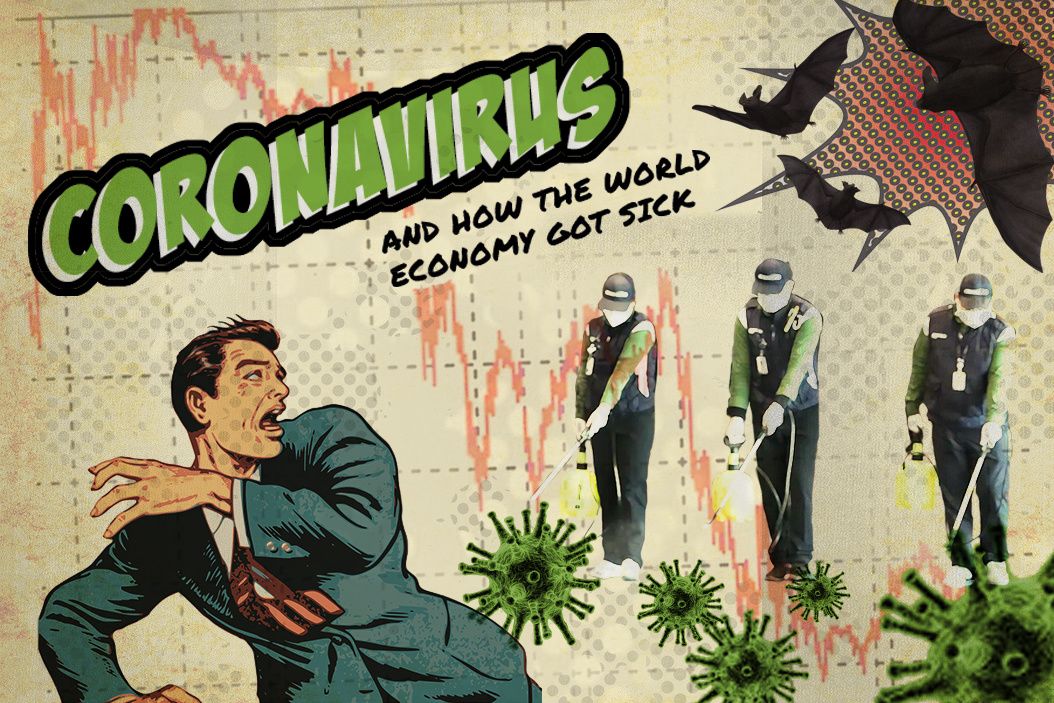Could a single bat in central China make the global economy catch a cold? Call it an undead variation of the butterfly effect, but as the Wuhan coronavirus (which may have originated in bats) continues to spread, companies and consumers around the world are bracing for chills.
Why? Well, for one thing, China accounts for about a fifth of global economic output and it's number one in global trade. That means that any time the Chinese economy shudders or stumbles, the shockwaves circle the globe. And China is most certainly shuddering.
To slow the disease's advance, officials extended the traditional Chinese New Year holiday, and locked down cities that are home to more than 50 million people. In Wuhan itself, a major manufacturing and export hub, factories are shuttered for at least another week, and about a dozen other industrial regions have followed suit.
While China's own people are clearly bearing the brunt of the epidemic, here are three reasons why the outbreak, and the response to it, are also affecting the global economy:
China is a leading market for the world's largest consumer goods companies. But the quarantine and lockdown restrictions have forced many of those businesses to go dark in China for now. Apple, for example, has closed all its stores in China, its second largest market. Starbucks, similarly dependent, has closed half its shops in the country. China's oil imports, the largest in the world, are also reportedly taking a hit as the virus crimps travel and industrial production there. Dozens of air carriers, meanwhile, have cut service to China.
China is the world's largest exporter, and with many of the factories that do that exporting now closed, global businesses that rely on parts and labor in China are scrambling to figure out alternatives. DHL, who know a thing or two about supply chains, have warned of "serious disruptions." This affects everything from your smartphone, to your vacuum cleaner to your (or your kids') video game consoles.
Markets get jittery. People who trade the stocks of all the companies affected by this are understandably jittery. US markets have taken a hit in recent days and China's main stock indices fell about 8 percent when they opened yesterday for the first time since the beginning of the Chinese New Year holiday.
The good news is, after it gets worse, it generally gets better – when China's stores, factories, and travel links reopen, there will likely be a mini boom as everyone gets back to shopping and working and exporting. The bad news is: we still don't know when that might be.
